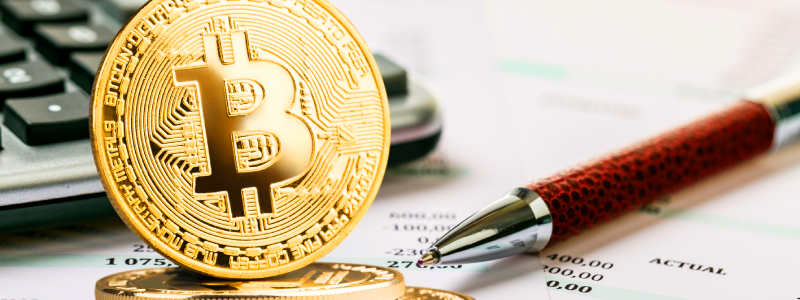Want to learn more about Gaming and Decentralized Finance (“GameFi”) and what tax complications might arise? Read on.
Blockchain gaming continues to grow in popularity as new projects emerge, competing with existing blockchain games in innovation of design, ‘tokenomics’ and utility. This has led to an increase in blockchain games, utilizing different ways of implementing and rewarding the player base in Non-Fungible Tokens (“NFTs”), and or, tokens associated to the project (native token). As does the increase in blockchain games being developed and published so does its user base, the gamers. It is reported that blockchain gaming represents 50% of all network traffic on the blockchain.
The attractiveness of blockchain gaming is derived from its decentralized nature, being financially rewarded whilst you play and owning the in-game assets. Whilst an exciting time to be involved in the metaverse, it is important to understand the tax implications, complexities and work to reduce what may be a very high compliance bill from your accountant come tax time.
GameFi Overview
Blockchain gaming, or GameFi, uses blockchain technology, non-fungible tokens (“NFTs”) and other reward mechanisms (also known as tokenomics ‘token economics’) to develop an environment for players to play games and be rewarded financially in doing so. As the blockchain technology used allows blockchain games to be decentralized it makes the process of recognizing amounts earnt difficult. This is due to the process of claiming, or minting, your rewards which may include NFTs or native tokens.
Tax implications
It’s important to understand that engaging with blockchain gaming and earning rewards whilst you play has ordinary income and capital gain tax implications, unless the assets are personal use assets. By playing blockchain games you may be periodically rewarded with NFTs or tokens native to the game or its network. This is done via decentralization and requires player to ‘claim’ their rewards or income which requires a network fee or gas fee to be paid in order to allow the processing (minting) of the NFT or depositing crypto tokens to your wallet address. The process of doing this can occur daily if not hourly depending on your engagement with the game. Therefore, the tax considerations quickly become significant.
Ordinary Income Considerations
There is an ordinary income component when earning rewards via NFTs or tokens when engaging with a blockchain game. Currently the ordinary income will equal the market value of the reward when it is earnt. The complexity here is that this is done ‘offchain’ and the market value when earnt will rarely be the same as when it is received ‘onchain’ due to timing of when it is earnt and claimed. This creates a significant challenge as the ATO current prescribes that income is reportable when earnt and while earning crypto via GameFi does not create a record for taxpayers to refer to, ascertaining the market value of the income being derived is near impossible.
Until further guidance is provided by the ATO regarding this matter, a reasonable estimate of the market value of the crypto earnt may need to be calculated in order to effectively report on your taxes.
This emphasizes the importance of maintaining accurate and thorough records when engaging with GameFi. Keeping thorough records of your activity including, frequency of rewards, the rewards being received, and approximate values will certainly help to ascertain your records when calculating the tax considerations come tax come.
Capital Gain Tax Considerations
To add to the complexity of deriving income when earnt via blockchain gaming is that NFTs and crypto tokens are considered capital assets. When rewards are earnt the market value is recorded as ordinary income and the cost base of the capital asset is recognized at the same amount. This effectively prevents double taxation. There will be a capital gains event A1 when the NFT or token is swapped for another cryptocurrency/NFT, sold to fiat, or gifted to somebody else. For clarity, a capital gains event A1 will occur whenever there is a change in ownership of the crypto that you hold. This is different from a taxpayer transferring NFTs and tokens from one wallet that they hold to another, or to a centralized exchange to be sold for fiat.
A taxpayer will report a capital gain if the capital proceeds received exceeds the cost base of the asset disposed. Likewise, a taxpayer will report a capital loss if the capital proceeds received is less than the cost base of the asset disposed.
The capital proceeds is the value of the receiving token or NFT at the time of the transaction. If sold for fiat this is simply the value of fiat received. For tax purposes, the values are all recognized in Australian dollars.
Carrying On a Business
If you are carrying on a business in cryptocurrency and blockchain gaming the tax implications change quite dramatically from capital account to revenue account. The greatest challenge in carrying on a business in GameFi is the trading stock rules which require taxpayers to recognize the lower of cost or market value of their trading stock (i.e., the cryptocurrency portfolio attributed in deriving business income) at the end of the financial year (30th June 20XX). As it is likely that GameFi trading stock will include NFTs, calculating the exact value at the time the NFT is received, or at the end of the financial year can be a burdensome task. This leaves few options in calculating an accurate estimate and may require a reasonable estimate to be made. Again, thorough record keeping will save the day in helping to ascertain holding values, where third party websites may be incorporated in providing average NFT values that can be applied to each NFT on a per game basis. Whilst we understand that this may lead to material variances between the realistic and estimated values, if in doubt, it is always advisable to seek the advice and or approval from the ATO’s early engagement team.
Personal Use Assets
There are quite substantial similarities in how the ATO views crypto coins/tokens and NFTs. This is evident by their revised guidance Crypto as a personal use asset QC 69954 and Non-fungible tokens QC 66097 respectively.
The ATO prescribes that a crypto asset and NFT will be personal use asset if it is kept mainly for personal use. The ATO extends this to include crypto assets held for short periods and is used to buy items for personal use. This excludes holding crypto as an asset and disposing over time realizing the gain or profit made on your portfolio. In this instance a capital gains event a1 will trigger, whereby the asset is disposed of to acquire goods or services, for example, using a crypto.com Visa card to pay for groceries.
If you hold a personal use asset, a capital gain on the disposal will be disregarded if the acquisition of the crypto was less than $10,000.
For NFTs the ATO prescribes that it depends on the circumstances of the NFT being held and how it is being used. Whilst it is very unlikely that engaging in a play to earn game whereby you are rewarded in NFTs and crypto tokens will be deemed personal use, there may be extreme situations where this is the case. Therefore, it is important to seek professional advice from your crypto tax specialist for clarification.
Summary
To summarize the tax implications of earning while you play, taxpayers will need to declare their rewards as ordinary income which is the NFT or tokens that have been earnt. As a capital asset has also been received, when it is disposed of there is further capital gain tax implications that require calculating and reporting within the income tax return.
There may be a timing issue between when the crypto is earnt and when it is deposited into the wallet, creating a void in record keeping substantiating dates, times, amounts, the NFT, the token and the respective market values. This is due to the process of earning being done off the blockchain network and is only recognized on the blockchain network when claimed and deposited into the taxpayer’s wallet.
Whilst these shortcomings and challenges have not been met head on by the ATO, there are practical solutions which will assist in completing the filing of your Income Tax Return.
We look forward in hearing revised guidance from the ATO in more practical applications of the law as it applies to blockchain gaming.
We understand that crypto tax affairs may be complicated and so can your situation, that is why Fullstack Advisory offers complimentary consultations to the community to hear, understand and advise you on the associated tax implications. We also offer a full suite of compliance and advisory services to aid you in your crypto taxa affairs. Please do not hesitate to reach out to our friendly and experienced team of crypto tax experts who are dedicated in seeing you thrive.
The age old saying is those who do not plan, plan to have a large compliance bill. Don’t get caught out without a plan schedule an appointment here to discuss your matter and how we can take it further.

















